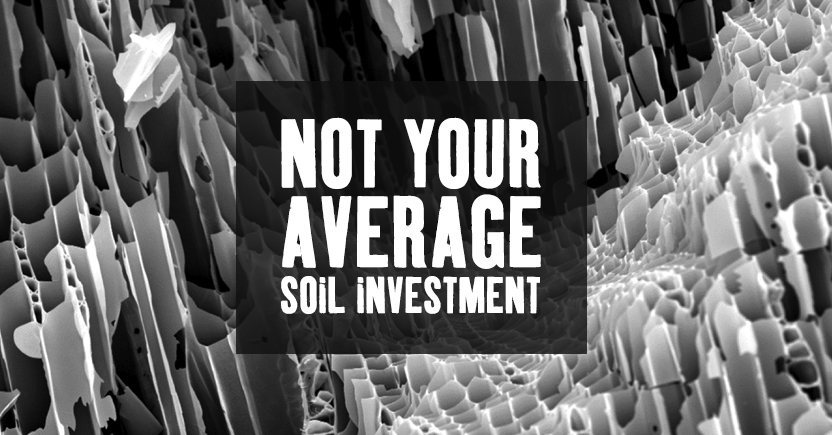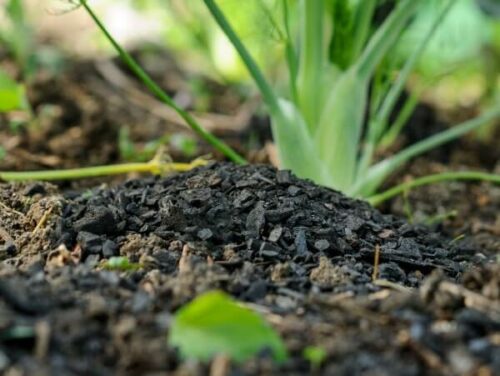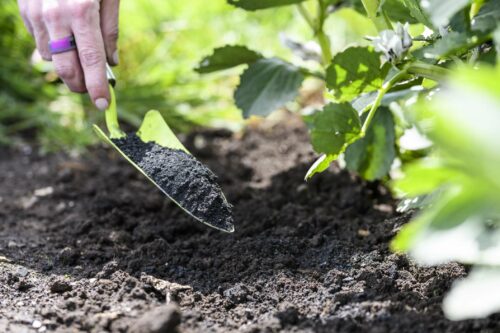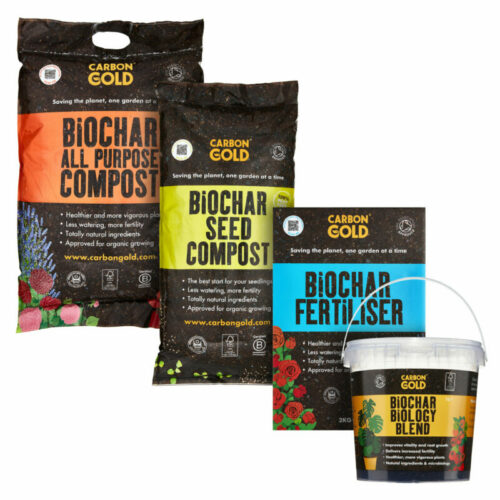A recent report from Harper Adams University analysed data that measured biochar’s effect on crop yields.
Their conclusion? Biochar increases yields in tropical soils by 25% but, on average, no increase was seen in temperate soils. Does one wonder why then, that biochar is so widely used in temperate climates? Who’s right, the growers who use biochar or the academics who have studied research by other academics? So at Carbon Gold, we decided to look at their published comments in more detail.
The key word here is ‘average.’ The researchers found that there are significant biochar yield boosts in temperate climates, particularly in horticulture but then they lost the plot by averaging things out. How do you average different crops, with different values, different farming methods and different origins? Answer: you can’t.
If you look at the tropical figures, the same applies, some yield increases could be 50%, some just 1%. Sometimes, averages just aren’t useful.
If you average out yield increases in certain soils you also lose sight of the tremendous yield benefits that occur in many other applications with biochar in temperate regions. These are particularly important for greenhouse crops grown throughout Europe – such as tomatoes, cucumbers and peppers – where yield increases up to 27% have been recorded.
It’s about nutrient, naturally
The researchers focused on ‘nutrient’ as the predominant feature of biochar application. Then they found that biochar with fertiliser added increased growth. But the prominent feature of biochar is ‘biology’ not nutrient. Biochar supports the healthy soil biology of microbes that are the plant’s immune system and that generate its natural nutrient supply. When a farmer adds soluble fertilisers or sprays with fungicides then the biology of the soil suffers and biochar becomes of less value. Synthetic nitrogen degrades soil organic matter, as is well publicised. Fungicides kill of the soil fungi that are the key to healthy plant growth. To compare biochar on a like-for-like basis with systems that use chemical fertilisers and fungicides is to miss the point – biochar enables growers to reduce the usage, and expense, of both.
The fertile arable soils of temperate climates are in decline and are increasingly nutrient-poor and acidic. Regeneration is the name of the game – agriculture has got to rebuild our tired soils so that they are there for future generations. Biochar is a key tool in this. The researchers never mention regenerative farming, but it is the key to feeding future generations.
Investing in soils
Farmers are businessmen – they have input costs and output revenues and the goal is to make a profit by keeping a lid on the former and maximising the latter. They are capitalists, too. Their ‘capital’ is the soil and the biggest problem with modern agriculture is that high yields are increasingly dependent on costly inputs because the capital value of the soil is decreasing due to degradation of fertility.
The researchers agree that their research does not look at input costs. They write that temperate growers use ‘higher fertiliser inputs, leaving little room for additional benefits from biochar.’ Then they say that ‘high nutrient’ biochar performs better in the tropics than ‘low nutrient biochar.’ No kidding! If you add fertiliser to biochar then it is going to perform better than if you don’t. This casts doubt on the yield figures in the tropics they describe if they were obtained by pumping up biochar with fertiliser.
To be fair the researchers to identify the multiple benefits of biochar:
- reduced fertiliser costs
- reduced liming costs
- crop disease and pest suppression
- soil water retention
- improving the fertility of nutrient-poor and acidic soils (30% of the world’s soils)
- reduced greenhouse gas emissions
- other ecosystem services
- carbon sequestration
- Nitrous Oxide mitigation
If you’re a farmer or grower that’s an impressive list of benefits to consider. If you can get even the same yields while enjoying the reduced input costs and long term benefits of improving the fertility of your soil, then biochar makes sense. For many farmers biochar does increase yields, defying the average. But even if you don’t get increased yields, if your soil stays in good heart, your irrigation costs decline and your inputs of fertiliser and pesticides are reduced then you’re on to a winner.
With the world’s soils disappearing at the rate of 30 football fields every minute, it is time to take a holistic approach and not just focus narrowly on short-term rewards. With calls for farmers to practice ‘regenerative’ farming, biochar plays a key part in the reversal of soil degradation, reduced greenhouse gas emissions, increased sequestration of carbon as organic matter in the soil and reduced pollution from pesticides and nitrate fertiliser runoff.
The whole point of biochar is ‘health.’ Not just yield. Farming is the art of optimising the use of costly inputs with obtaining high-quality crops while maintaining the capital base of the business, soil, in good condition. Yield is just one of many factors that a farmer considers in taking a holistic approach.











